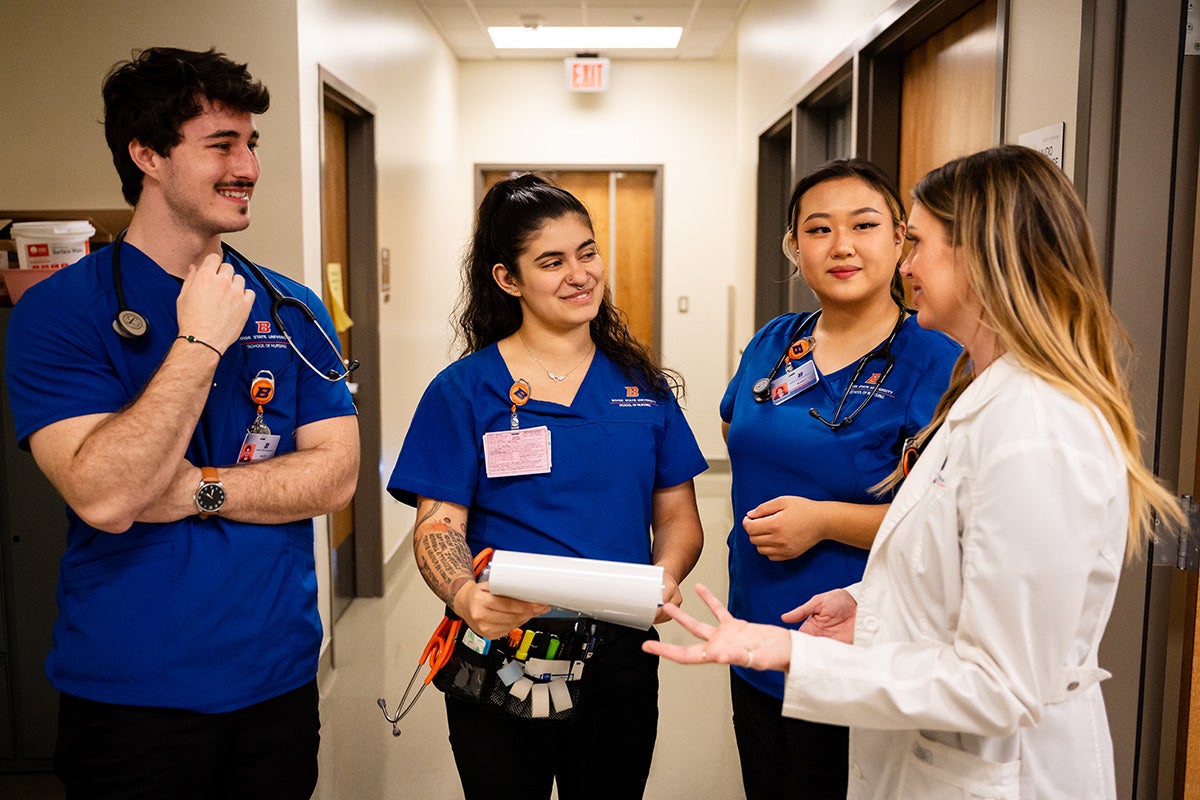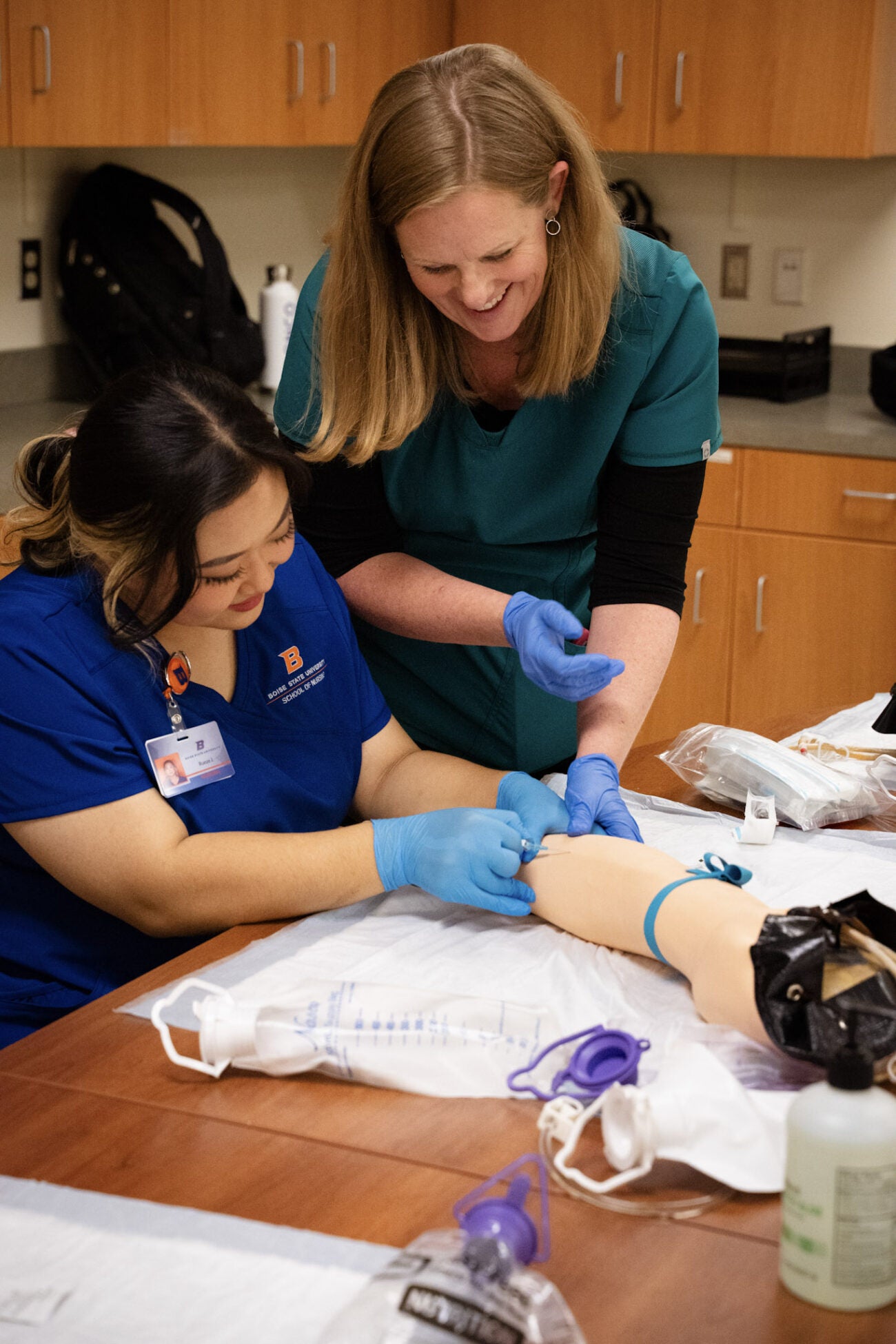
U.S. News and World Report recently ranked Boise State’s on-campus bachelor’s of science in nursing program number one in Idaho and in the nation’s top 100.
“This ranking reflects both the innovation and expertise of our faculty as well as the outstanding caliber of our students,” said Amy Spurlock, chief nurse administrator and associate divisional dean of the School of Nursing. “The majority of our pre-license graduates choose to practice in Idaho and we remain proud of the impact they make in serving the critical health needs within our state.”
Boise State also ranked within the top five nursing schools in the northwest. This region includes 36 public and private universities across Alaska, Idaho, Montana, Nevada, Oregon, Utah and Washington.
Educating nurses since 1955, the School of Nursing’s top-tier bachelor’s program has exceptional retention rates. The on-campus cohort admits 80 students every semester, and graduates consistently achieve higher pass rates on the registered nurse licensure exam (NCLEX) than the national average.
The entire program emphasizes characteristics that represent both the identity of Boise State and expert nurses: compassionate care, cultivating community, ethics, resiliency and professionalism.
Snapshot of the program

The school recently updated its undergraduate curriculum to reflect new industry standards and priorities necessary for upholding accreditation.
The curriculum embraces a scaffolded learning approach, ensuring students get the most relevant education to equip them for the modern workplace.
“Prioritizing competency-based education, and exceptional clinical judgment skills, helps our students enter the workforce ready to participate as essential team members,” said Angie Phillips, director of the undergraduate pre-license program.
New courses were designed with the idea of educating students not just in basic nursing skills, but with a holistic understanding of the nursing industry. Students explore areas of healthcare technology and informatics, design thinking and innovative change.
Students in the program practice communication, teamwork and repetitive skill-building in the state-of-the-art College of Health Sciences Simulation Center. They also have the opportunity to engage in research, broadening their knowledge and impacting the field of nursing as undergraduate research assistants.
Students receive valuable experiential learning opportunities in clinical courses that have an exceptional 10:1 student/faculty ratio. The school’s strong partnerships with local healthcare organizations also help students build connections with potential employers.
The School of Nursing is accredited through 2030 by the American Association of Colleges of Nursing.